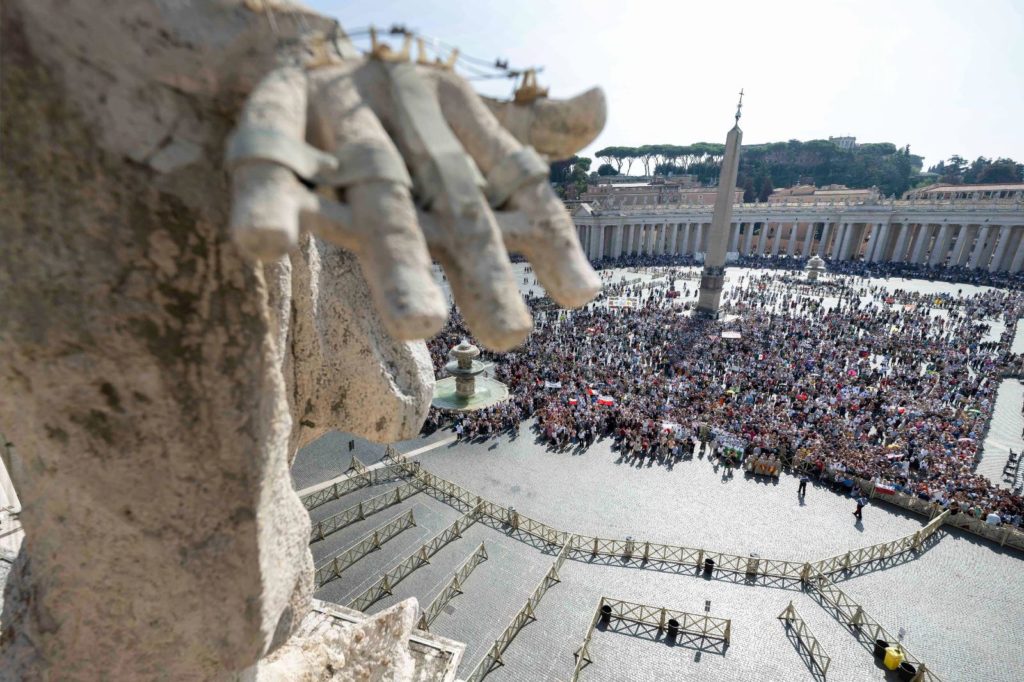Rather than hide behind a facade of faithfulness, Christians should be sincere with God even when telling him "no," Pope Francis said.
Speaking to some 20,000 visitors gathered in St. Peter's Square Oct. 1, the pope reflected on the day's Gospel reading from St. Matthew in which Jesus tells the parable of the two sons; when asked by their father to work in the vineyard one replies "no" but goes to the vineyard, while the other says "yes" but does not go.
The problem in the parable, Pope Francis said, does not consist in the two sons' resistance to the difficult task of working in the vineyard, but in "their sincerity, or lack thereof, with their father and with themselves."
The son who says "yes" but does not go to the vineyard shows a "false willingness that hides his laziness, and he saves face for the time being," the pope said. Yet "he is a hypocrite. He gets by without conflict, but he cheats and deceives his father, disrespecting him in a way that is worse than had he responded with a blunt 'no.'"
The problem with that son's behavior, the pope said, is not that he is a sinner, but that he is "corrupt," since he hides his disobedience "without welcoming any honest dialogue or feedback."
The son who said "no" to the father's command but did go to the vineyard "is not perfect, but sincere," the pope said.
His "no" to the father "shows his reluctance clearly and, in a certain sense, courageously," Pope Francis said.
"He is a sinner, we could say, but he is not corrupt," the pope said. "There is always the hope of redemption for a sinner; for the corrupt, instead, it is much more difficult."
The pope urged people to reflect on their willingness to say "yes" to God, and to ask themselves when they fail to do so, "Am I sincere before God about my difficulties, my failings, my weaknesses?"
After praying the Angelus, Pope Francis called for dialogue between Armenia and Azerbaijan so that, with the help of the international community, they might reach an agreement to address the humanitarian crisis surrounding Nagorno-Karabakh. The Armenian enclave was recaptured by Azerbaijan after a one-day military offensive in September, and more than 100,000 refugees have since fled to Armenia, according to the World Health Organization.
On the feast of St. Thérèse of Lisieux, who the pope has called his favorite saint, he announced that his apostolic exhortation on the French saint's message will be published Oct. 15.
He also noted that the month of October is dedicated to the rosary and missions, and asked Christians to pray for Ukraine and "all lands wounded by war," the evangelization of peoples and the assembly of the Synod of Bishops, which is scheduled to open Oct. 4.

